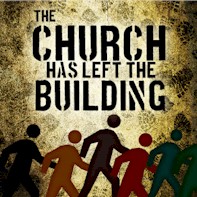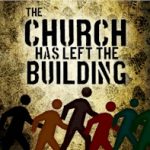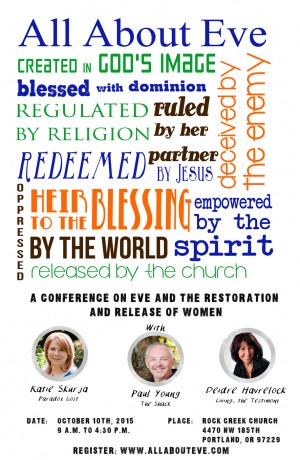 This is a guest post by Jim Gordon.
This is a guest post by Jim Gordon.
Jim is the contributor for Done with Religion, a blog site about living for God in a non-religious way. Jim grew up being part of the Methodist church for several years, then was part of several non-denominational churches over the next few years before leaving the institution. He and his wife, after many years in the organized church, have been living for God outside the walls of the traditional church. They live in the central Ohio area. Along with his blog, you can connect with Jim on Facebook and Twitter.
If you would like to write a Guest Post for RedeemingGod.com, begin by reading the Guest Blogger Guidelines.
My wife and I grew up in the organized church, spent many years involved and enjoyed it. At the time we thought this is what God intended and was the only way to obey the commands of the Bible about meeting together.
After years in the organization, we began to have an uneasy feeling about the way church was done. We were very unsatisfied each week going to a building, listening to one group of people lead the singing, then listening to one person do all the talking.
We started wondering why the pastor was the only person who had authority to speak for God and tell us how we were to act and believe. When we read verses such as I Corinthians 14:26 about each one of us having something to say, we wondered why that never happened.
 After several years of questioning and being unhappy with the way church was performed, my wife and I made a decision to stop attending and see how we felt.
After several years of questioning and being unhappy with the way church was performed, my wife and I made a decision to stop attending and see how we felt.
Of course the first thing many people told us was that we were wrong for staying away because the bible says not to forsake the assembling of yourselves together. After thinking about that verse for a while, I came to the conclusion that it was not talking about an organized meeting once a week in a building. We took this verse to mean that we needed our brothers and sisters in Christ on a daily basis in normal day to day living.
The first several months after leaving church as we knew it, the thing that seemed like a priority to us was finding something else to get involved in such as a small group or house church. After a short time we came to find that many house churches and small groups were actually nothing more than church on a smaller scale.
Now that we have been out of the organized system for a couple years, we are coming to realize we are having more meaningful fellowship without any type of organized group or meeting. Living for Christ is a daily lifestyle not a one day or now and then way of living. Jesus is living within us by the Holy Spirit and we fellowship with Him daily. He has been bringing people into our lives that share our thoughts about organized church, some for a long period, some for a short while, and others just on a one time basis.
We have found that since being out of the church system, we depend on God more and enjoy meaningful fellowship with others more than we did when it was at a set place on a set time frame with only a few select people in charge and doing all the teaching.
We believe that Church is a community of believers who get together anytime, anywhere, no matter if it is only 2 or 3 people. This is the assembling of the believers to us, fellowship time together anytime God brings it about realizing God is within us and we are the Church.
I am not going to say that the organized church is a bad thing, though I do believe it is not what God meant when He said He would build His Church. I have many happy memories in church, made many friends there and learned a lot about our Father. Yet at this point, neither my wife nor I would want to go back into the organized church with its many doctrines and religious ways of doing church. We have found so much more meaning and fellowship outside the walls and we are enjoying our walk down this path God has lead us too.
 We also find it interesting that God leads us to people when we least expect it, even when it is someplace that no one would expect such as a restaurant, park, work or even a pub. We have also made a lot of friends that many religious people would not want to be around, yet the love of Christ within us draws us together in love and acceptance.
We also find it interesting that God leads us to people when we least expect it, even when it is someplace that no one would expect such as a restaurant, park, work or even a pub. We have also made a lot of friends that many religious people would not want to be around, yet the love of Christ within us draws us together in love and acceptance.
We were always taught in the church that we should separate ourselves from the non-believers and only talk to them when we could ‘witness’ for Christ. Basically that seems to mean talk to non-believers only when we can point out their mistakes or condemn them for their way of life. I never found in the bible where Jesus treated anyone that way.
If you are satisfied with the week to week services and religious ways of doing church that is OK. Stay there and enjoy the time you have with other like-minded believers. If you are questioning the way church is done, or if you are dissatisfied and looking to leave the organization then do so without feeling guilty. Seek God and ask Him to lead you, teach you and guide you in this new path outside the walls of religion.





 They firmly believe they are followers of Jesus and are still part of the Church, even though they no longer sit in a pew on Sunday morning.
They firmly believe they are followers of Jesus and are still part of the Church, even though they no longer sit in a pew on Sunday morning.
 They sit back, and they usually joke around a bit about how they want God to give them a million dollars and a mansion on the beach and let them live forever in perfect health.
They sit back, and they usually joke around a bit about how they want God to give them a million dollars and a mansion on the beach and let them live forever in perfect health. 
 If you have this sort of conversation with someone, and then you end it with, “So come to our church on Sunday! This is what our pastor teaches! His sermons are great!” you will probably never have a conversation with that person again. They will think that the only reason you said what you said was to get them into a pew at your church. They will see it as manipulative (and they would be right).
If you have this sort of conversation with someone, and then you end it with, “So come to our church on Sunday! This is what our pastor teaches! His sermons are great!” you will probably never have a conversation with that person again. They will think that the only reason you said what you said was to get them into a pew at your church. They will see it as manipulative (and they would be right).




 I probably should have clarified that Malachi was written primarily to the religious leaders of Israel, but not only to them. As the spiritual leaders, they were the spiritual representatives for Israel, and so naturally, Israel followed their lead. So Malachi 3:6 does mention the sons of Jacob, which may refer to all the people of Israel. Although even then, the statement in Malachi 3:6 is not so much about the actions of the son of Judah, but God’s long-suffering grace upon them. I read this verse as saying that God does not consume the sons of Jacob for the actions of the priests (or of the forefathers – Malachi 3:7). God is patient and long-suffering, and keeps His Word.
I probably should have clarified that Malachi was written primarily to the religious leaders of Israel, but not only to them. As the spiritual leaders, they were the spiritual representatives for Israel, and so naturally, Israel followed their lead. So Malachi 3:6 does mention the sons of Jacob, which may refer to all the people of Israel. Although even then, the statement in Malachi 3:6 is not so much about the actions of the son of Judah, but God’s long-suffering grace upon them. I read this verse as saying that God does not consume the sons of Jacob for the actions of the priests (or of the forefathers – Malachi 3:7). God is patient and long-suffering, and keeps His Word.